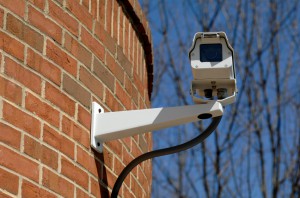Spyware & Stealth Smartphone Apps: Is High Tech Spying On Your Spouse Legal?
 It’s a common situation we hear about when adultery (either actual or suspected) is involved in the demise of a marriage: one spouse decides to spy on the other. While in years past, snooping on a spouse usually entailed rifling through purses or pockets (or hiring a private investigator to catch cheaters in the act), in this day and age, spousal snooping more often involves hacking into email accounts and installing tracer apps on smartphones. Beyond the moral issues any form of spying raises, are these high tech forms of snooping even legal? As the law on “inter-spousal spying” stands right now, it depends on the type of snooping and spying you’re engaged in. According to the federal wiretapping laws and the New Jersey Wiretapping and Electronic Surveillance Control Act (N.J.S.A. 2A:156A), activities that may be illegal or constitute a violation of privacy include the following:
It’s a common situation we hear about when adultery (either actual or suspected) is involved in the demise of a marriage: one spouse decides to spy on the other. While in years past, snooping on a spouse usually entailed rifling through purses or pockets (or hiring a private investigator to catch cheaters in the act), in this day and age, spousal snooping more often involves hacking into email accounts and installing tracer apps on smartphones. Beyond the moral issues any form of spying raises, are these high tech forms of snooping even legal? As the law on “inter-spousal spying” stands right now, it depends on the type of snooping and spying you’re engaged in. According to the federal wiretapping laws and the New Jersey Wiretapping and Electronic Surveillance Control Act (N.J.S.A. 2A:156A), activities that may be illegal or constitute a violation of privacy include the following:
Hacking password-protected accounts: Accessing a spouse’s password-protected email accounts or private messages sent to Facebook and Twitter accounts is generally considered a violation of privacy, whether you installed some kind of keystroke logging spyware to gain access or simply guessed the password. This means that even if you do obtain evidence of cheating from snooping through these accounts, expect that it would be thrown out if introduced as evidence in your divorce. Public tweets and public Facebook posts are, however, typically fair game and could be used as evidence if needed.
Snooping on a spouse’s computer or phone that is owned by his or her place of work: Is that lap top your spouse uses at home company-issued? If you snoop, be aware that you could be accused of privacy violations. However, looking through files on family-owned computers or browsing the call history of your family plan phone probably won’t pose a problem.
Intercepting and/or recording cellular or cordless telephone calls between your spouse and another party: Did you find a nifty app that will let you record your spouse’s phone calls without him or her knowing? In New Jersey, this is illegal. In general, email correspondence, texts and calls between the two of you may be admissible in court as long as they do not offend the Rules of Evidence.
Installing video surveillance: This is a gray area. Under the law, video surveillance conducted in the marital home is generally permissible and not considered an invasion of privacy, even if the camera is “hidden.” However, the argument could also be made that video surveillance is an invasion of privacy; the key issue is where the surveillance occurs. Installing a camera on the outside of your house to monitor the vehicles coming and going from your home during the day? This is generally accepted as legal. Installing a spy cam in the bathroom? You may find yourself in hot water.
Are you reading this after you already snooped? If you have collected any form of “gotcha!” evidence against your spouse, it’s a good idea to talk to your attorney about the kind of information you are in possession of, as well as the tactics you used to obtain it.
Or you a spouse worried about being spied on? Learn how to protect yourself from high tech snooping (and learn when spying can be considered stalking) with our companion blog, Spying on Your Spouse During Divorce: How Far is Too Far?

